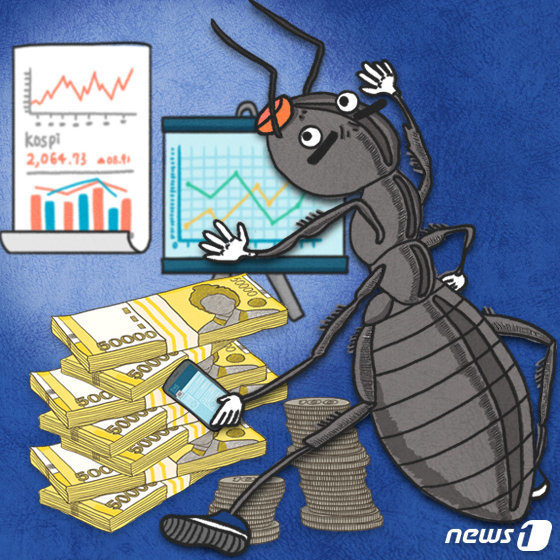Individual investors come back to domestic stock market
Individual investors come back to domestic stock market
Posted March. 03, 2025 07:17,
Updated March. 03, 2025 07:17

Individual investors, who had shifted their investments overseas, apparently returned to the Korean stock market last month as they have been less attracted to overseas investments since this year began amid the sustained higher returns on domestic stocks compared to other major markets.
Retail investors engaged in domestic stock transactions, which total stock purchases and sales, worth 547.18 trillion won from Feb. 1 to Feb. 26, according to the Korea Exchange on Sunday. Even with two trading days left, last month’s trading volume already surpassed that of the previous month (422. 43 trillion won). The daily average trading volume of retail investors rose by 7 trillion won from 23. 47 trillion won in January to 30.39 trillion won, exceeding the 30 trillion-won threshold in daily average trading value among individual investors in the South Korean stock market in eight months since last June.
Meanwhile, overseas stock markets have seen a decrease in such investors over the same period. The aggregate volume of individual investments decreased to 47.78896 billion dollars from Feb. 1 to Feb. 26 by 12.06 billion dollars compared to January, according to the Korea Securities Depository’s SEIBro.
The return of individual investors to the domestic stock market is attributable mainly to high investment returns. From the start of the year until Feb. 26, the KOSPI and KOSDAQ indices went up by 10.07 percent and 13.75 percent, respectively, considerably outperforming major global indices such as the U.S. Dow Jones (2.46 percent), S&P 500 (1.49 percent), Nasdaq (-1.07 percent), Japan’s Nikkei 225 (-2.96 percent) and China’s Shanghai Composite (3.61 percent).
However, experts warn that a strong South Korean stock market, which has lasted two months, will only be a short-lived trend. After all, the KOSPI index saw a sharp drop by 3.39 percent last Friday after U.S. President Donald Trump’s sudden announcement of additional tariffs on China, Mexico and Canada.
"Earlier next month, the U.S. government will announce its reciprocal tariffs targeting global trading partners," said iM Securities analyst Lee Ung-chan. He noted that investment funds exiting the U.S. market could lead to short-term overheating in European and Hong Kong stock markets, further escalating volatility in the domestic market.
강우석 기자 wskang@donga.com







